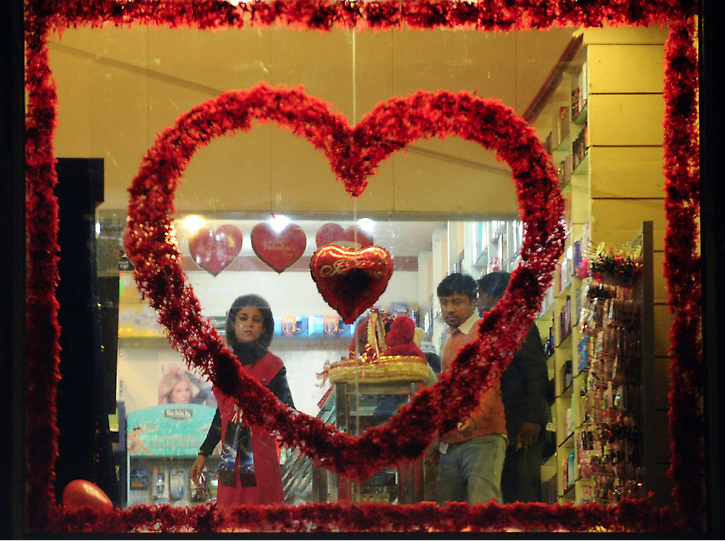The origins of St. Valentine’s Day are somewhat obscure, but most tend to agree that whoever he actually was, St. Valentine was a Christian martyr who lived in the second or third centuries of the Common Era. The connection between St. Valentine’s Day and romantic love was first asserted by Geoffrey Chaucer in his Parlement of Foules, a 14th-century poem written to honor the anniversary of the marriage of King Richard the II and Anne of Bohemia, but it was not popularly feted as a day for love and romance until the late 17th Century. Today it is celebrated around the world in Christian, Hebraic, Buddhist, and Islamic countries alike—a point emphasized by the many slide shows (e.g., here, here, here, and here) that have put such images on display— where it is accompanied by the annual sale and delivery of nearly one billion greeting cards, as well as numerous other commodified gifts, including, most commonly, candies, flowers, stuffed animals, and jewelry. If capitalism has been successful in taking the “Christ” out of Christmas, it seems to have been no less successful in colonizing the celebration of love for economic gain, and in a global register. Or at least in nearly a global register, for the holiday is not without its ideological detractors, as it is banned and roundly vilified in Islamic Pakistan, a country where, it turns out, the holiday nevertheless continues to be celebrated.
Photo Credits: Francois Lenoir/Reuters; Andrew Milligan/AP; Shaun Best/Reuters; Adrian Bradshaw/European Pressphoto Agency; Dado Ruvic/Reuters; Sabah Arar/Baghdad; Muhammed Muheisen/AP; Morteza Nikoubazl/Reuters; Ali Hashisho/Reuters; Rizwan Tabassum/AFP/Getty; Aamir Qureshi/AFP;










